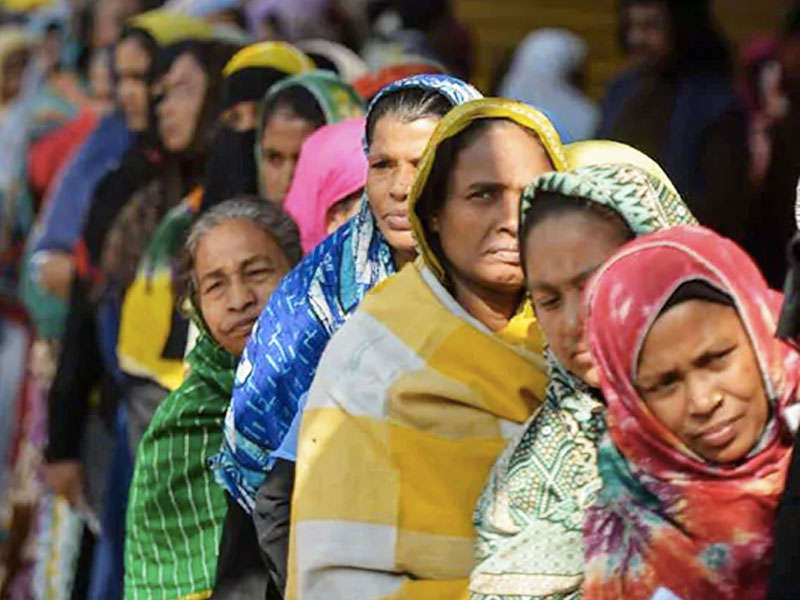
New Delhi, January 2: A prominent international civil society group today called on the newly-elected government of Sheikh Hasina Wajed in Bangladesh to investigate allegations of vote rigging and intimidation in the recent elections. Sheikh Hasina’s ruling Awami League party won an unprecedented victory in the December 30, 2018 general elections.
The Commonwealth Human Rights Initiative (CHRI) urged the Bangladesh Prime Minister to respond positively to calls for a “credible resolution of allegations related to the conduct of the elections.”
CHRI referred to separate statements in this regard by the European Union, the UK as well as the United States which were critical of the run-up to and conduct of the elections. The EU said the process was “tainted” while the United States declared it had received credible reports of extensive pressure which “made it difficult for many opposition candidates and their supporters to meet, hold rallies, and campaign freely.” India has welcomed the election outcome.
While noting the massive Awami League victory, CHRI referred to remarks by Dr. Iftekharuzzaman, Executive Director, Transparency International Bangladesh, that “violence and multifaceted violations of election code” had raised doubts over the polls and even the role of the Election Commission.
Sanjoy Hazarika, CHRI’s International Director, said that a credible inquiry would strengthen democratic systems but, “if left unaddressed, the issues could seriously undermine the independence of the electoral process.”
The EU and US sent observers to monitor the elections; the Commonwealth Secretariat sent a two-person team two days before the scheduled vote.
At least 17 people were reportedly killed in clashes during voting on December 30 and news reports quoted voters and polling agents from the opposition party as saying that they were turned away from booths.
CHRI also pointed to the use of the new Digital Security Act (DSA) to arrest Hedait Hossain Molla, a correspondent from the Dhaka Tribune, on a charge of “false reporting” on the election results. Another journalist who has also been sued is reportedly on the run.
“This is a textbook case of everything that is wrong with the DSA,” said Zafar Sobhan, editor of the Tribune, responding to the arrest. The Act was passed last October, despite extensive domestic and international media opposition. A review of the Act is necessary especially in light of the fact that Bangladesh joined the UN Human Rights Council as a member today in Geneva.
Media leaders say that the overly broad provisions of the DSA can be misused to silence dissent, intimidate journalists and carry out invasive forms of surveillance. CHRI and SAMDEN, the South Asia Media Defenders Network, among other groups have called for amendments to the clauses of the DSA that embed official arbitrary conduct.
The Act criminalises many forms of freedom of expression and gives the police the power to arrest anyone without a warrant simply on suspicion of a crime committed using digital media. The law’s predecessor, the Information and Communication Technology Act, which was used to arrest renowned international photojournalist Shahidul Alam last year. Alam was released recently after months of incarceration.
***
For further details, contact Richa, Media and Communications Officer, CHRI: richa@humanrightsinitiative.org
